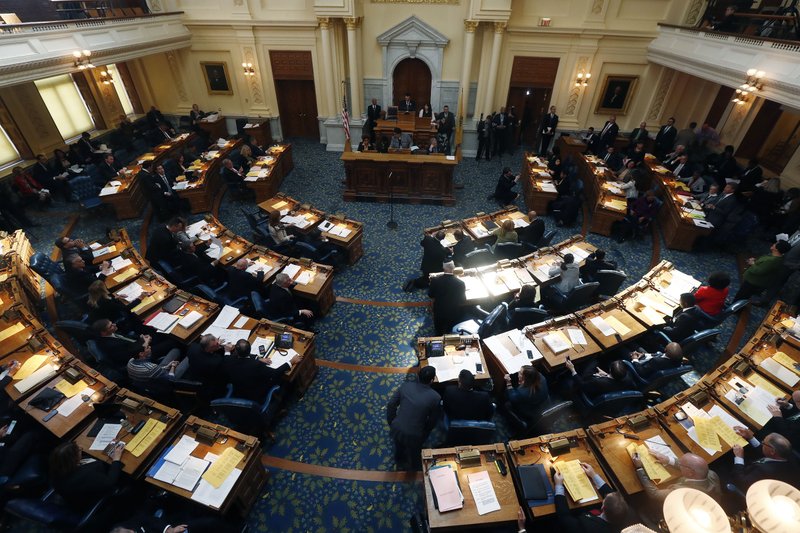HONOLULU -- Lawmakers in nearly half the states want to add a requirement for presidential candidates: Show us your tax returns.
The issue has dogged President Donald Trump, who became the first presidential candidate in modern times to refuse to make his returns public.
It flared anew this week after MSNBC said it had obtained two pages of Trump's 2005 federal return, prompting the administration to release the documents pre-emptively.
State lawmakers around the country, mostly Democrats, want to ensure transparency in future presidential campaigns so voters can evaluate candidates' sources of income and any possible conflicts of interest. Most of the bills would require presidential contenders to release copies of their returns as a condition for appearing on that state's ballot, although it's unclear whether they could survive a court challenge.
[PRESIDENT TRUMP: Timeline, appointments, executive orders + guide to actions in first 100 days]
The aim is to find out about potential conflicts that candidates might have before they take office, said Hawaii Rep. Chris Lee, a Democrat who introduced one of the Hawaii bills.
"With what we've seen so far with this administration, there are clear conflicts with respect to whether or not parts of the president's business empire are directly benefiting from federal contracts to house Secret Service at his own hotels, for example, or pressuring foreign dignitaries or other corporations indirectly to patronize the businesses that the president or his children run," Lee said. "And the real question is, What else don't we know?"
Hawaii was the first state to have votes on the bills before the full Legislature. The Democrat-controlled House and Senate recently passed separate but largely similar measures, which would prevent the state's delegates to the Electoral College from voting for candidates who withheld their tax forms.
Lawmakers are likely to send one of those to Hawaii Gov. David Ige, a Democrat who expressed concerns about whether the proposed changes are constitutional. He said he does not think the state can place limits on the presidential election that are inconsistent with how the election is conducted around the country.
Some legal experts raised similar flags, saying states do not have the power to create new qualifications for the office of the president. That's up to the U.S. Constitution.
The U.S. Supreme Court has held that states and the federal government cannot add to the qualifications of senators and congressional representatives outlined in the Constitution.
Some legal experts said that guidance likely would extend to the office of the president.
"I think a requirement of revealing one's tax returns would be regarded as an additional qualification," said Michael McConnell, a professor at Stanford Law School. "And then there's the tax law problem, because federal law guarantees the confidentiality of tax returns. And I think that law would pre-empt any state law requiring someone to divulge their returns."
Trump has refused to make his tax returns public, breaking a decadeslong tradition among presidential candidates. He initially promised to do so but then claimed he was under audit by the Internal Revenue Service and that his attorneys had advised against it. Experts and IRS officials said such audits do not prohibit taxpayers from releasing their own returns.
Presidential tax return legislation has been introduced in at least 24 states, according to the National Conference of State Legislatures. Most were introduced by Democrats, although bills in Kansas and Minnesota were introduced by Republicans.
New Jersey's Democratic Legislature approved a presidential tax return bill Thursday. While bills in Democratic-leaning states such as Maryland and Vermont have had legislative hearings, those introduced in Republican-controlled statehouses such as Arizona, Georgia, Michigan, Minnesota and Pennsylvania are stalling.
Information for this article was contributed by Bob Christie, Michael Catalini, Jonathan J. Cooper, Cory Dawson, David Eggert, Kathleen Foody, Marc Levy, Kyle Potter and Brian Witte of The Associated Press.
A Section on 03/18/2017
